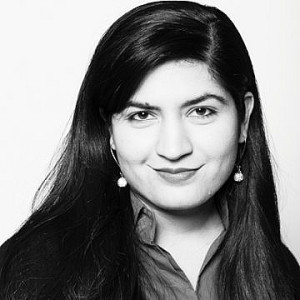In Pursuit of Excellence
Description
Vocal Characteristics
Language
EnglishVoice Age
Young Adult (18-35)Accents
North American (General)Transcript
Note: Transcripts are generated using speech recognition software and may contain errors.
There were several hot button issues in their one up to this year's presidential elections. But the issue of race wasn't really one of them. Back in 2000 and eight, though, things were different. The possibility of America electing the country's first black president gave rise to debates and discussions on several levels. It also gave rise to the York Project, a special Siris of conversations on NPR with a group of voters in York, Pennsylvania, about race and its role in the 2000 and eight presidential election. One person who says she's changed is Sarah Yeah, Coviello, who was a young white mother. For the first time in my life, I really feel like I've put myself in someone else's shoes. And even as I go to the grocery store or walk down the street, I think about what it's like to be an African American, and I think that's what's played into my joy over this election. I ordinarily I wouldn't be joyous. I'm enthusiastic, conservative, and I wouldn't have been joyous, but for some reason at this point I am. She says she better understands what Barack Obama's victory means after these chats, what it means for someone like Cal Weary. He's a black high school drama teacher who now wonders if the world sees him in a new way. Ah, thought that crosses his mind while driving from his suburban neighborhood to his job in downtown York. Maybe I'm imagining it, but I feel like now some of the sometimes that I'm on my way to work. The people who I passed mostly in my car are white, and sometimes I wonder, what are they thinking when they see me? Do they think that I'm pulling out in front of their car? Because now I think that I could get away with They realize that I'm just a jerk when I drive. The York Project was produced under the leadership of Metallica Sica, executive producer of NPR's Morning Edition. She spoke with the Alfred I. DuPont Award Center at Columbia University about the project. It was a collaboration between the two flagship shows at NPR Morning Edition and all things Considered and in light of the candidacy of Barack Obama, it's the conversation that was happening in the country was about race and we really wanted to sort of get under the hood of that conversation on it was a very rewarding, very warding subject. Very tough thing. Toe pull off In 2010 the Siri's won the DuPont Award here to accept the DuPont Silver baton for NPR. Our Michele Norris, the co host of All Things Considered, and Steve Inskeep, the co host of Morning Edition. Zika says more than anything, the York project was about listening. There isn't enough listening going on in this sort of cacophony of our market media media world today. And, uh, I think the secret to being a really good interviewer is to be a really good listener. She's been with NPR since 2006 and says that over the years, NPR has embraced technology. You know, radio is a huge, important part of what we do, but, uh, you know, I think in the world we live in, people are accessing us in a lot of different ways, whether it's on a mobile device, whether it's through social media, whether it's through multimedia, and it's incumbent upon us to to be there for the audience. Zika has been the executive producer for Morning Edition since 2009 and under her tenor morning edition host have reported from all over the world. But she says, no matter where they go and what they do, the principles of good storytelling remain unchanged. We try to make our stories lively and relevant, but I think the core of what we do is is still the same. I think there's an intimacy with radio that, uh, you don't get in any other medium. I came from a lifetime in broadcast television, and I continue to be struck by the intimacy that radio allows. Sica's lifetime in broadcast television includes work as a senior producer for ABC News, Nightline and work with CBS and NBC News is Well, she says aspiring journalists need to be persistent. You know, a few years ago, I don't know what I've that I would have said this, but I think that now the world really is your oyster. I mean, the thing that is amazing is the access potential access people can have to your work because of the technology that just didn't exist before. She also says it's not just important to have a good hold on the technical aspect of journalism, critical thinking and a demonstration of interest and curiosity. I the same tools that you needed 50 years ago, 100 years ago in journalism, and I think you still need them today. Mother Lukasik A has won several awards, including four Emmys to DuPont awards and two Peabodys. In January, she will become the executive editor for NPR News Sana, big reporting for the DuPont Award Center.
